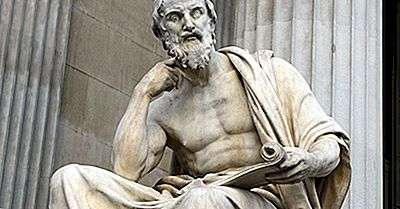Herodotus was one of the greatest historians of his time. Born into a prominent family around 484 BCE, he had access to the best education unlike most of his peers. His parents, Lyxes and Dyro, and his brother Theodorus lived in the Persian Empire, now the Republic of Turkey, where the famous poet Panyassis also lived. Herodotus learned a lot about ancient Greek literature and developed an itinerant character who took him across the Middle East, to Asia Minor, to Babylon and to Egypt, making him acquire many knowledge on geography and history.
In 457 BCE, there was a conflict between his clan and the leaders of the time. This was largely contributed by the great knowledge of his extended family which led them to question the leadership style of the leaders of Halicarnassus. This led him to go into exile in the Samos Islands and later in Babylon, Greece and Asia. He finally returned to his native region and helped overthrow the kingdom of Halicarnassus, becoming a hero in his hometown. He traveled to Athens in Greece and participated in the affairs of this city by making him win two awards for the most illustrious man and the most eminent statesman, Pericles. In 443 BCE, he moved to Thurii in Italy where he produced important literary works which will never be forgotten.
Works of Herodotus
As the first intuitive writer, Herodotus wrote an exceptional piece known as “Inquiry”, which helped researchers understand the occurrences of ancient times. In his early years, he must have heard of the preparations of the Persian Empire to attack Greece and the training of the army under the officer Artemisia de Cariac, forming works for his first history books. The main source of information for Herodotus was personal encounters with events, other witnesses and oral traditions. Besides the authors of the Bible, he has successfully analyzed the problems in a consistent format. His work went further by covering what was happening in other kingdoms like the King of Lydia, the history of Asia and the Black Sea.
He serialized his books starting with edition one and covered all aspects of life in economics, geography, the military and anthropology. The research content in book five is on the Lonian Revolution between 499 and 494 BCE, while book six is on the Persian defeat by the Athenians in 490 BCE in the Marathon region. His last books, which would have been produced in his last days, cover the voyage of exploration carried out between 480 BCE and 479 BC by Xerxes. He vividly captures the defeat of Xerxes by the Greeks and the consequences of the war.
In science, he explained the nature of the various aspects and phenomena. An example is the flooding of the Nile by melting snow despite the heat in Africa. He also reported on the huge ants that carried gold to the surface after digging the ground. These were established to be squirrels in the Desai Plateau, rich in gold, in Pakistan, which in fact came out with gold dust from their hibernating tunnels.
Critics of Herodotus’ work
Despite his great success in narrating chronicles of events, some authors find some fault in some of his publications. This is seen in cases where he relied on other people for information. Third parties are said to have distorted the true customs and events of the events, in particular in the second book devoted to the history of Egypt. The language barrier could also be another contributor to digression. Having no military training, he was unable to understand and accurately account for war operations. Nevertheless, modern philosophers and historians regard his work as the only analogy of events and data that makes us understand the ancient world.


